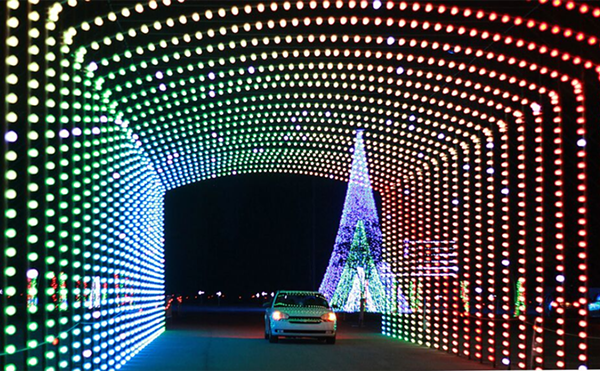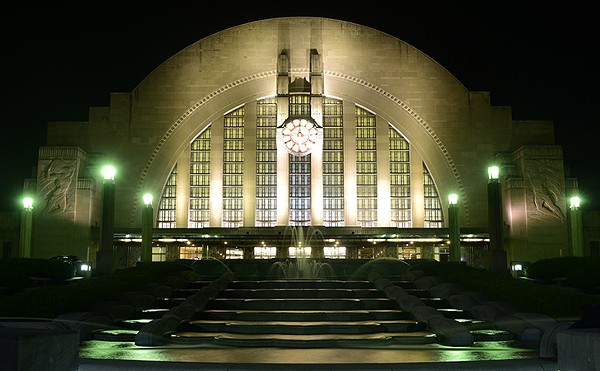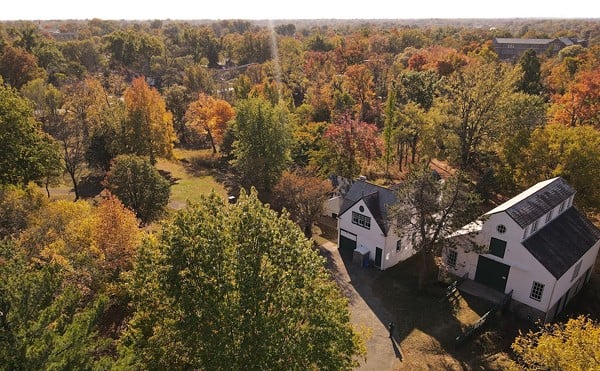The joke is that Cincinnati is always 10 years behind the times, but with the launch of three new zero-waste boutiques, this sustainable lifestyle movement is infiltrating the Queen City.
According to CNBC, the first American zero-waste grocery store opened in Austin, Texas in 2012. The idea behind these refilleries is to prevent waste by encouraging consumers to bring in their own containers, jars and bottles, fill them up with the necessary products and reuse them again and again. This reduces packaging waste like plastic, cardboard and shopping bags.
And by using their own personal sustainability journeys as a starting point, the owners of the three new stores in Cincinnati aim to educate, inspire and motivate the public to go greener in their everyday lives.
Cincinnati may be new to the game, but these shops are making it easier than ever to start cutting back on waste.
Fill More Waste Less
4305 Whetsel Ave., Madisonville, fillmorewasteless.com
Gabrielle Lauren, owner of Fill More Waste Less in Madisonville, has dedicated the last four years of her life to educating herself and others about zero-waste living. Her interest in the lifestyle began in 2017 when she was working as a nurse; it snowballed into a full-time job as she began creating resources for others who shared similar interests and values.
She launched Fill More Waste Less in 2019 and began operating pop-up shops around the city, spreading the word about zero-waste living both in-person and on her blog.
Despite working as a full-time nurse at the time she first started to become passionate about the movement, she cut back her hours to pursue these new goals.
“I found that it fueled some passion within me and a purpose, as well,” she says.
Along with a selection of plastic-free items like wooden brushes, reusable baggies and even compostable vegan floss, Fill More Waste Less offers a refillery — both in-store and online — that sells shampoo, body wash, dish soap, lotion and more. Customers can bring in any clean container to fill (or refill) with a product, or they can purchase one at the shop. The goal is to help eliminate single-use plastic bottles.
One of the first products that Lauren replaced in her own life was paper towels. Instead, she uses reusable cotton towels. “That will cut down on your waste instantly,” she says.
“I hope to bring awareness to the sustainability space because I feel like it’s not validated in a lot of circles,” Lauren says. “I think when things aren’t validated, it often comes from a lack of education. I am hoping to bring that awareness, education and resources to as many people as we can who are open and receptive to the cause.”
Koko
318 W. Fourth St., Downtown, kokotheshop.com
Adria Hall and Jamie Fairman are not new to the sustainability scene. In fact, Cincinnati’s Koko — and its sister plant shop Forage, located just next door — in the Historic West Fourth district is the duo’s fourth shop across the country.
Dedicated to selling the sustainable products Hall and Fairman love to use, Koko has locations in Lexington and Louisville, Kentucky; Denver, Colorado; and Columbus, Ohio. And Hall says they knew Cincinnati was the perfect place to continue their expansion.
“Jamie and I both went to the University of Kentucky and several of our best friends lived in Cincinnati,” she says. “It’s our home away from home. When the opportunity presented itself to be a part of this neighborhood, we couldn’t resist.”
Another motivating factor for opening in the Queen City was their desire to continue educating people across the Midwest about sustainability.
“These resources are more widely found on the coasts or bigger cities,” Hall says, “so it was important for us to bring some of these resources to the middle of the country.”
The heart of Koko is its refillery, which offers everything from shampoo to laundry detergent. Additionally, the shop sells other sustainable items like metal straws and bamboo cutlery sets as well as personal care products that align with Koko’s standards of packaging and ingredient quality.
“The most important thing that we do at Koko is show people what’s available, teach them how to use it (and) give them the resources, the options and the information and allow them to make decisions based on what their needs are,” Hall says.
Simply Zero
1235 Vine St., Over-the-Rhine, simplyzero.co
With a Master’s degree in environmental conservation, Rachel Felous, owner of Simply Zero in Over-the-Rhine, spent 12 years working in sustainability before she aligned her everyday life with her work life.
Her first step was bringing mason jars to her favorite coffee shops instead of using disposable cups and carrying reusable bags to the grocery store to cut back on plastic waste.
Although she is from Cincinnati, Felous has lived in Los Angeles, London and other big cities around the world. And when Simply Zero was still a burgeoning concept, she was torn between opening up shop in her hometown or launching her business elsewhere, like in L.A.
“At the end of the day, bringing awareness to things like protecting our environment and sustainable living here in Cincinnati was a much more powerful move than going to a place like Los Angeles, where their communities are much more aware of the lifestyle,” she says.
Simply Zero began as an educational platform and blog that grew into a brick-and-mortar refillery that opened on Vine Street in December.
“It really came as a realization that here in Cincinnati, there wasn’t any ‘one-stop-shop’ to find these products,” she says.
Instead of referring people to different websites where they could purchase waste-free products, Felous decided it was time to sell her own and build a community.
Her biggest piece of advice to sustainability newcomers: Don’t dive in too deep. Take baby steps.
She made sure to use what she had around the house before investing in more environmentally friendly options. As she ran out of certain items, she would replace them with zero-waste ones.
Slowly, her collection has grown over the years.
“I think making small changes over time gets you into the mindset that this is a lifestyle choice, not a short-term choice,” Felous says, “because living zero-waste is certainly a lifestyle. It’s not something that we achieve in a week or a year. It’s really an everyday practice.”

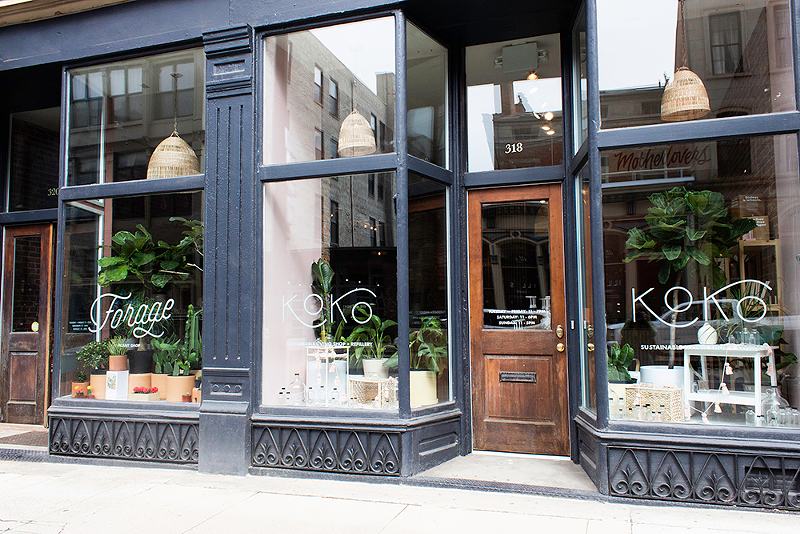
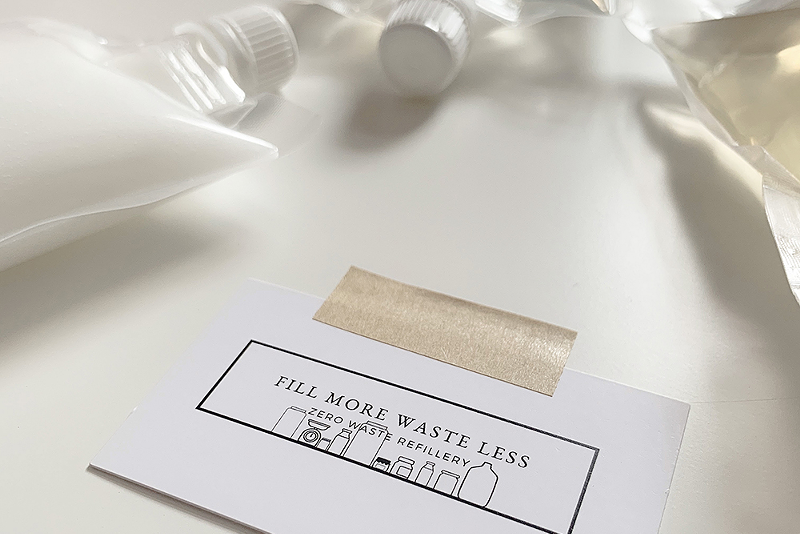
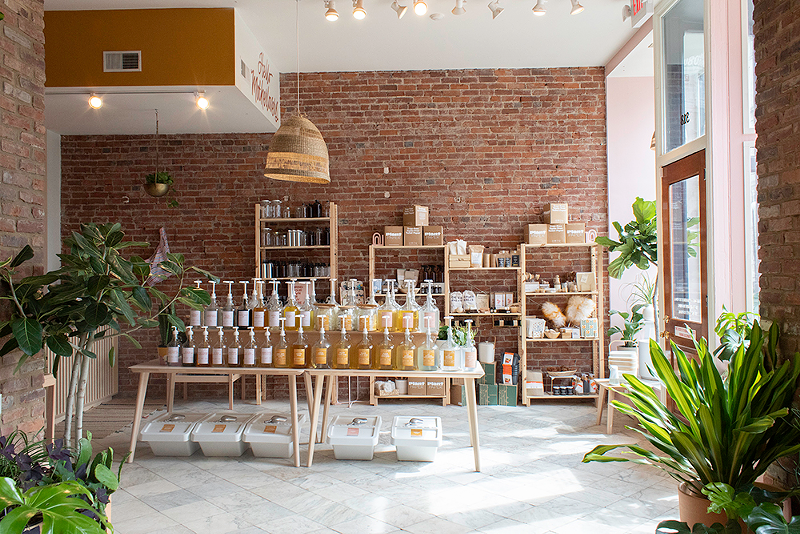
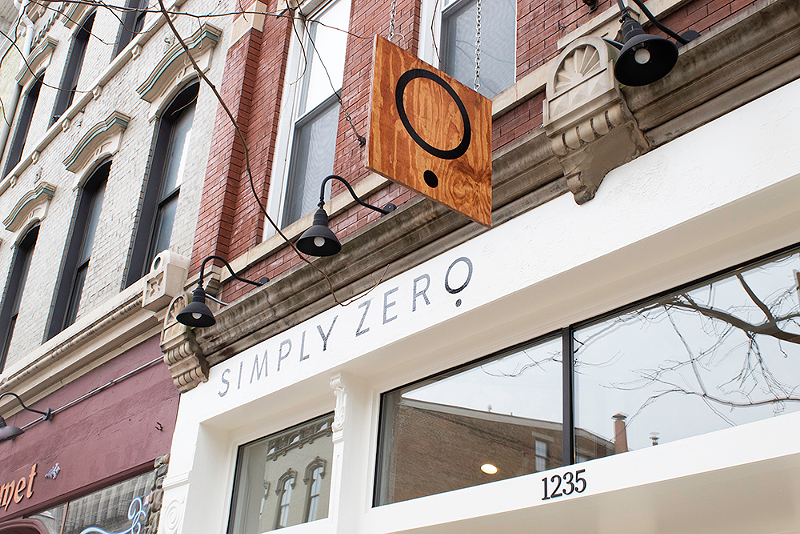
![NIC Kay — PUSHIT! [an exercise in getting well soon] at 2019's inaugural This Time Tomorrow](https://media1.citybeat.com/citybeat/imager/this-time-tomorrow-performing-arts-festival-returns-to-the-contemporary-arts-center/u/4x3-s/12262728/nickay_web_paigedeglow_4.6063829466acd.png?cb=1709162097)
